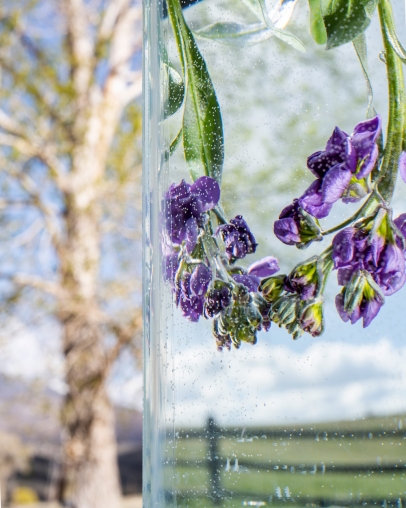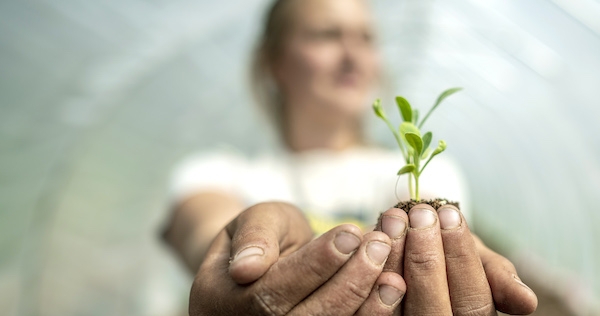Slow Flowers
“Flowers can light up a life,” says Abby Zlotnick, owner of Juniper Farm. “When I started growing them, I felt the need to justify it, because I felt like food is what we really need in the world. But I just don’t think that’s true anymore. Flowers feed our souls. People need joy.”
Surely we can all attest to the importance of centering joy in our lives, especially after a year of collective darkness. Flowers are a simple source of soul nourishment—studies prove they have long-term positive impacts on our moods.
Their context, however? Not so simple. Though local food has taken root, an estimated 80 percent of flowers purchased in the United States are grown overseas, traveling thousands of miles and relying on fossil fuels, synthetic pesticides, and unjust labor. Has the time come to connect the dots about the health of the flowers on our tables the same way we do our food?
In answer, ecological flower farms are unfurling across the country, taking their place alongside sustainable food. Juniper Farm, in Old Snowmass, is heading into its third season and expanding. Paonia’s Zephyros Farm is known more for its colorful blooms than its vegetables.
“We’ve been here for 18 years and grew flowers from the beginning,” says Don Lareau, who co-owns Zephyros with his wife, Daphne Yannakakis. “We fell in love with them.”
In season, which spans from late spring until the first hard frosts of fall, these farms boast rows of dazzling, chest-high blooms, a living expression of this floral labor-of-love affair and the rise of the slow flower movement.
“Before, we would get this sort of blank stare when we’d talk about certified organic flowers,” laughs Lareau. “But people are starting to get it.”
The social, economic, and ecological benefits go beyond the consumer, and the guiding principles of the local food movement also apply to slow flowers: shorter miles, localized economy, and not polluting land or people with harmful chemicals.
“In the end, it doesn’t matter if you’re growing lettuce or a sunflower,” says Lareau. “It’s about what you do to the soil and the farmworkers.”
Both farms even see benefits before the blooms leave their fields.
“They go hand in hand with growing vegetables,” says Zlotnick. “The flowers bring new pollinators to the farm and insects that help mitigate pest issues. And the diversity [of plant species] is good for the soil and the land.”
Once in your hands, sustainable blooms have magical benefits to you, too. Aside from being chemical-free joy-bringers, each bouquet offers you an intimate seasonal connection with your region’s rhythms: Spring’s anemones lead to summer’s zinnias and into fall’s chrysanthemums, with an extraordinary array of unique flowers not found in supermarkets in between.
With seasonality comes adaptation: Just like you wouldn’t get local tomatoes in winter, flowers too are best when they’re in season. Are peonies part of your perfect wedding vision in Aspen? Marry in spring! Love dahlias? Choose fall.
Farming in the Rocky Mountains requires adaptation for your farmer too—with haphazard weather, drought, and a blip of a growing season. These extremes make local flowers, and the farmer-florists who steward them, all the more precious. ❧
In Bloom
Light up your life with a flower CSA (Juniper and Zephyros both offer one), add a bouquet to your farmers’ market trip, and talk to your local sustainable flower farmer about your next event—Modern West Floral Company, based in Silt with a shop in Carbondale, is a third great option. Visit floretflowers.com/directory to find local flower sources in your area. Here are some of our favorite local blooms.
Sweet peas: Exuding a quintessential smell of late spring, these vining beauties are great en masse in a Mason jar on your table.
Echinacea: Native to Colorado’s high country in the summer, these coneflowers make excellent cut flowers—and boost the immune system.
Bouquet dill: This edible herb’s blooms are both aromatic and attract a plethora of beneficial insects; use their seeds in your cooking at season’s end.
Rudbeckia: This hardy daisy-like flower thrives as a perennial in Colorado and is known for its golden late-summer cheer.






